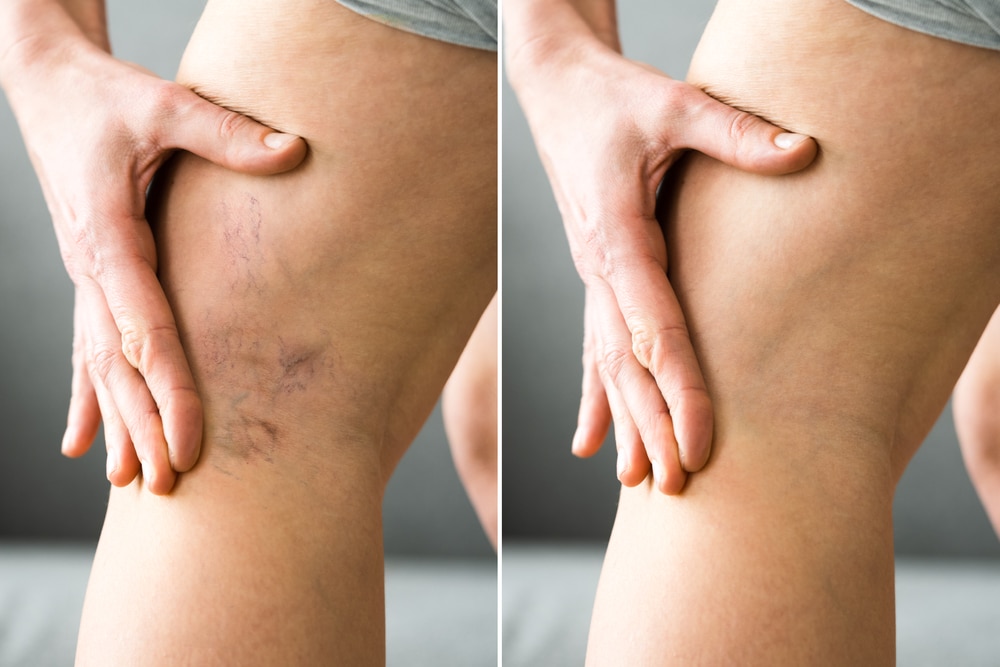When it comes to vein treatments, there can be a lot to learn especially when it comes to understanding what’s available and what might be the right fit for you. At Venus Vein Clinic, we specialize in diagnosing and treating venous disease, bringing years of experience and expertise to the table, and we can help you get the information you need.
One question that often arises is the issue of insurance coverage for vein treatments. While we offer various solutions for venous issues, not all of them are covered by insurance in every case. Based in Omaha, NE, we pride ourselves on being a trusted source for straightforward, professional advice on how to navigate these financial considerations.
Why Insurance Matters
Insurance coverage plays a significant role in the decision-making process for many people considering varicose vein treatments or other vein therapies. Adequate coverage can substantially reduce out-of-pocket expenses, making these treatments more financially accessible. It’s crucial to understand your individual insurance policy’s specifics to know which treatments may be covered and what financial responsibility you may hold.
Different Vein Concerns That May Be Treated
Spider Veins
Spider vein treatments can address the tiny, web-like veins that appear close to the skin’s surface. These therapies can include laser therapy and sclerotherapy, among others. While generally considered a cosmetic issue, spider vein removal can alleviate discomfort and improve your skin’s appearance.
Varicose Veins
For those experiencing varicose vein pain, medical intervention often becomes a necessity rather than a choice. Vein treatment options for varicose veins range from minimally invasive options like endovenous laser therapy to minimally invasive surgical options such as ambulatory phlebectomy.
What Types of Vein Treatments Are Available?
- Radiofrequency Ablation: This technique uses radiofrequency energy to heat and close off malfunctioning veins.
- Venaseal Ablation: In this vein treatment, a medical adhesive is used to close off faulty veins. It’s a relatively quick process and typically requires only a single small incision.
- Ambulatory Phlebectomy: This procedure involves removing surface varicose veins through small punctures in the skin. It’s generally well-tolerated and offers quick recovery times.
- Sclerotherapy: Often the go-to option for spider vein treatment, sclerotherapy involves injecting a solution into the spider veins, causing them to collapse and eventually fade away.
- Varithena: This varicose vein treatment involves injecting a foam into the vein to reduce symptoms, close off veins, and improve appearance. It’s an option for those who are looking for a less invasive procedure for their varicose veins.
Are These Vein Treatments Covered By Insurance?
Insurance coverage for vein treatments can vary widely depending on the type of treatment and your specific insurance plan. Generally, procedures deemed medically necessary are more likely to be covered than treatments that are purely cosmetic. It’s essential to consult your insurance provider and our clinic to understand what your plan covers before undergoing any procedures.
Factors That May Impact Insurance Coverage
Medical History
Your medical history is often one of the first things insurance companies look at when determining coverage for vein treatment. Past records of venous issues or related conditions could influence the likelihood of obtaining insurance approval.
Symptoms and Severity
The level of varicose vein pain you’re experiencing could also impact whether your insurance will cover the treatment. Treatments for severe symptoms that impact your quality of life are generally more likely to be covered than those for mild discomfort.
Cosmetic vs. Medical Necessity
Insurance companies typically distinguish between cosmetic procedures and medically necessary ones. While spider vein removal may be considered cosmetic by some providers, if your symptoms are causing you significant discomfort, there may be a case for medical necessity.
Doctor Recommendations
The type of vein treatment recommended by us can also influence your insurance coverage. Medical documentation detailing why a particular treatment is recommended can often aid in securing insurance coverage.
Specific Insurance Policies
Finally, individual insurance plans have their own sets of rules and guidelines for what treatments they cover. Always consult your insurance provider for the most accurate information on what your specific policy covers.
How to Find Out If Your Treatment Is Covered
Step 1: Consult Your Healthcare Provider for a Diagnosis and Treatment Plan
The first step in determining whether your treatment will be covered by insurance is to consult with us for a diagnosis and treatment plan. We will evaluate your condition, recommend appropriate treatments, and provide the necessary medical documentation.
Step 2: Review Your Insurance Policy for Relevant Clauses or Codes
Once you have a treatment plan in place, review your insurance policy to look for relevant clauses or codes that pertain to vein treatments. This will give you a preliminary idea of whether your chosen treatment is likely to be covered.
Step 3: Contact Your Insurance Company Directly
For the most accurate information, contact your insurance company directly to discuss your condition and proposed treatment. They can provide explicit details on what is and isn’t covered under your specific plan.
Step 4: Get Pre-Authorization If Required
Some treatments may require pre-authorization from your insurance company. Make sure to complete this step, if applicable, before proceeding with any procedures. Failing to do so could result in a denial of coverage.
Step 5: Appeals and Considering Other Options
If your treatment is not covered or you’re unhappy with the extent of the coverage, you have the right to appeal the decision with your insurance company. Additionally, consider alternative payment options like Health Savings Accounts (HSA), Flexible Savings Accounts (FSA), or payment plans as offered.
Your First Step: Setting Up a Consultation
Navigating the financial aspects of vein treatment doesn’t have to be complicated. At Venus Vein Clinic in Omaha, NE, we’re committed to providing you with clear, straightforward guidance every step of the way. If you have more questions or are ready to get started, feel free to reach out to us at (402) 979-8346 or fill out our online form today.

